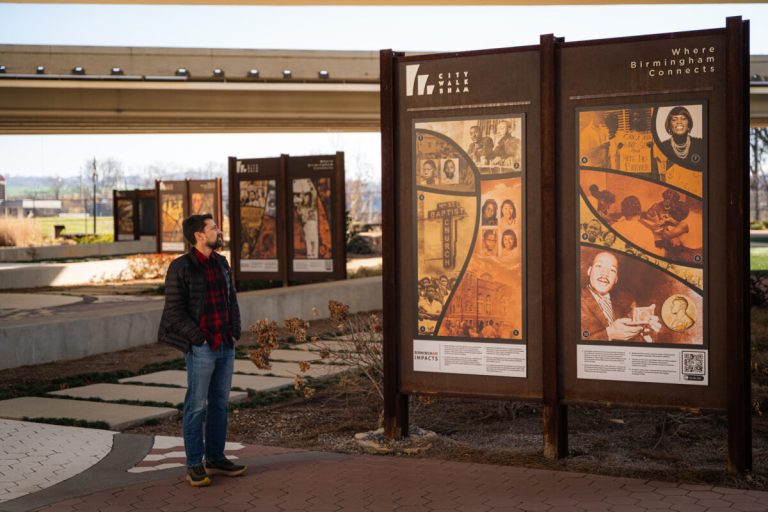Birmingham joins nationwide Smart Cities Collaborative to improve city life
Reading time: 2 minutes

Birmingham has joined 12 other cities in a peer learning program known as the Smart Cities Collaborative to improve the management of downtown’s curbs. Learn more.
Why Curbs?

Since curbs form a link between transportation and local businesses, they are one of a city’s most valuable assets.
However, proper curb management is difficult. For instance, think about how many different groups demand curb space. You’ve got parking, trash pickup, and water management all competing for the same space used by micro-mobility, outdoor restaurant seating and pedestrians.
The Smart Cities Collaborative Wants to Manage Your Curb

Since curbs are one of a city’s most valuable assets, it makes sense to use their full potential. That’s where the Smart Cities Collaborative shines.
The Smart Cities Collaborative is an program launched by Transportation for America, an advocacy organization that envisions transportation systems that connects all people to where they need to go.
This year-long program helps leaders in public sector transport share their experiences with other cities. This conversation helps these cities each develop the best practices that encourage and improve accessibility in city life.
Why Birmingham?

Since Birmingham has experimented with Zyp bikes, Bird scooters, and other micro-mobility options in the past, it’s clear that the city wants to change attitudes about public transportation.
Throughout the year, three “guinea pig” cities–Bellevue, WA; Boston, MA; and Minneapolis, MN–will test theoretical mobility services and provide valuable insights to cities like Birmingham.
In addition to Birmingham, Transportation for America is launching the initiative in 12 other cities: Ann Arbor, MI; Boulder, CO; Gainesville, FL; Grand Rapids, MI; Gresham, OR; Los Angeles, CA; Madison, WI; Portland, OR; Metro, OR; Washington, D.C.; West Palm Beach, FL; West Sacramento, CA.



